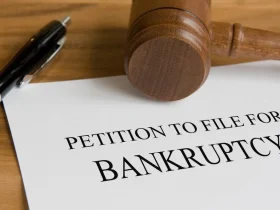The epoxy formulation is one of the most important parts used in the building industry. It has been widely used for half a century. Epoxy floor coating is widely utilized in floor applications. Because keeping industrial floors in tip-top condition is necessary for business operations. There are many things about this type of coating that you may or may not know. Let’s discuss them:
Epoxy resins:
Undoubtedly, these are the secret behind the high-performing coating of epoxy. It is the core material of the formulations, including top-coats, sealants, and epoxy-based primers. These types of resins used in the epoxy formulations make it possible for floor coatings to perform very well. It can perform as floor finishes, protective coats, waterproofing, fire retardants, and damage-resistance paints.
Applicable in many surface types:
Different flooring applications require different coating systems, which are verbalized mainly by the kind of material utilized for the substrate. Epoxy coatings are the best coatings that can perform well on steel, concrete, and many other types of surfaces. It is not only limited to just one type of flooring as it is applicable in many surface types.
Impermeable:
The molecules of resins which are the core material of epoxy formulations are cross-linked, which means they are nearly impermeable. When epoxies are exposed to amines, the compounds of bisphenol A and epichlorohydrin organochlorine or epoxide have a unique chemistry that creates a reaction that in turn produces cross-linked epoxies. As a result of these reactions, the epoxies coating generated is highly water-resistant, chemical, or air intrusion. It has a critical ability in corrosion-prone metal as well as in concrete surfaces.
Increased performance:
In tandem with epoxy, there are some common coating systems created, including epoxy-amine systems, aliphatic epoxy systems, hybrid epoxy systems, and epoxy-sulphide systems. These systems, when combining with other materials, they increase performance. With the help of amine, fast curing times, maximized adhesion, and glossy surface appearance is achieved. These coating systems also perform well with acrylics and alkyds.
Protection of heavy-duty floors:
Epoxy coatings on the surfaces are applied to protect heavy-duty floors. These coatings are resistant to different kinds of damages. No doubt, these coatings are mostly applied in all those areas and spaces which are constantly exposed and visible to damaging agents and elements. These areas include manufacturing plants, heavy machinery garages, aeroplane hangars, and warehouse floors, etc.
Impressive adhesive properties:
Undoubtedly, these floor coatings come with strong adhesive properties and capabilities as it contains 1.5 thousand pounds of adhesive power in approximately per inch square of flooring. This means the floor remains unbroken and in good condition for a long time, even in harsh weather conditions. Its adhesive properties make the floor able to bear harsh and intense physical loads as well as nasty weather conditions.
Good fire-retardants:
When exposed to extreme heat, the epoxy coatings contain pigments that are able to get expanded more quickly and easily. This expansion of the epoxy creates thick and strong barrier protection against fire. It responds as a fire-fighting team. This is one of the great benefits that you may not know about such type of flooring.
Water-borne, Solvent-borne, and high-solids:
Epoxies are great as they have terrific properties, but at the same time, these are either water-borne, solvent-borne, or high-solids. There are some kinds of epoxies that are water-borne, and these are effective for many types of surfaces. The high-solid formulations are able to cover broader application areas and spaces as it contains lower VOC amounts. There is also a type called solvent-borne epoxies. It is an older technology, but it contains higher VOCs, and it releases the toxic odour.
It contains health and environmental hazards:
As mentioned earlier, this coating contains a bisphenol A compound. This compound is currently under inspection as it is somehow considered a potential health hazard. Moreover, the solvent-based coats of an epoxy floor coating also contain high levels of VOCs, which are considered to be harmful to the environment as well as to the workers.










